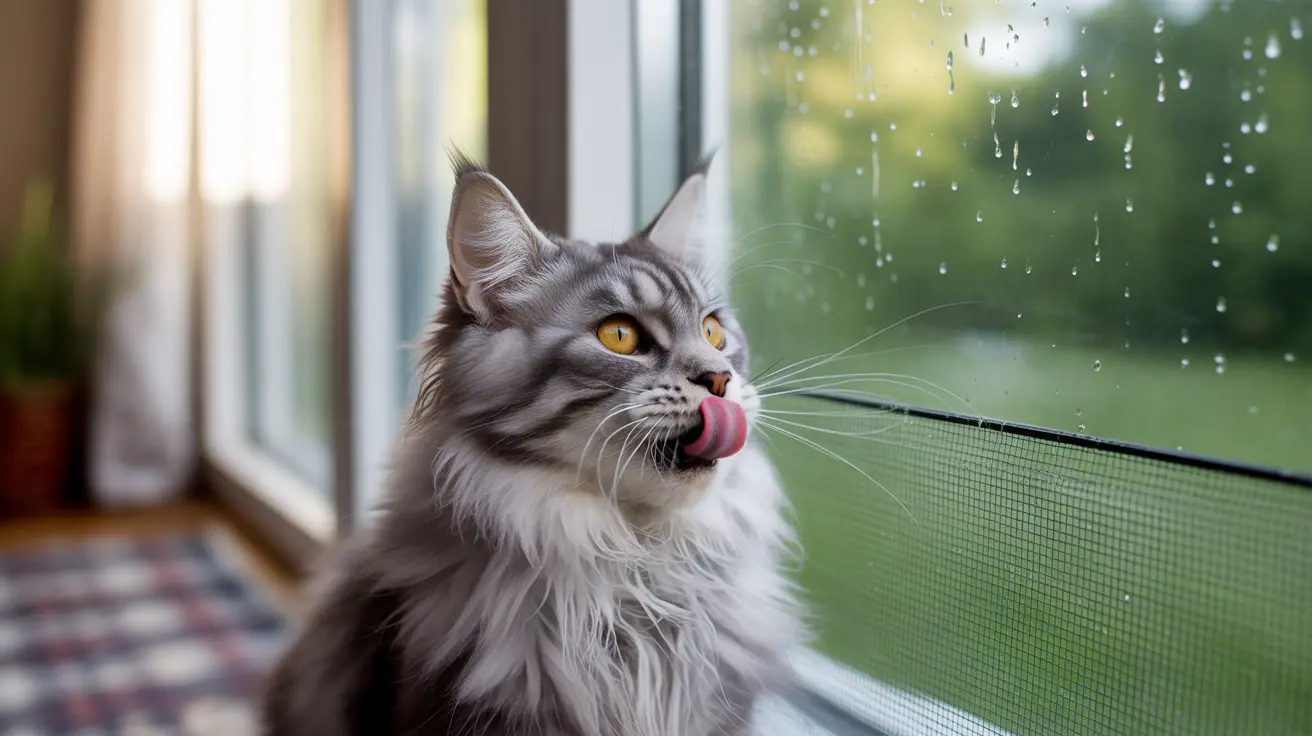Natural Instincts and Sensory Appeal
Cats are naturally drawn to window screens for several compelling reasons. The texture of the mesh provides an interesting sensory experience for their highly sensitive tongues, while the screen itself often captures interesting scents and tastes from both indoor and outdoor environments.
The metal or fiber mesh of window screens can also trap microscopic particles, including minerals and organic matter, which might appeal to your cat's refined sense of taste. This natural attraction is often enhanced when insects or moisture collect on the screen, making it even more enticing to curious felines.
Environmental Factors and Stimulation
Window screens serve as a gateway to the outside world for indoor cats. When they observe birds, insects, or other wildlife through the screen, their hunting instincts can become activated. The act of licking the screen might be an extension of their predatory response or a way to investigate the movements they're witnessing.
Additionally, condensation that forms on screens during temperature changes can attract cats who are drawn to fresh water sources. This behavior might be particularly noticeable during early morning hours or in humid weather conditions.
Behavioral and Psychological Aspects
Sometimes, screen licking can be linked to psychological factors. Cats might engage in this behavior as a self-soothing mechanism when feeling anxious or stressed. Changes in the household routine, new pets, or environmental modifications can trigger this type of response.
In some cases, the behavior might become habitual simply because it garners attention from their human companions. Cats quickly learn which actions result in interaction with their owners, even if that attention is meant to discourage the behavior.
Health Considerations and Safety
While occasional screen licking is generally harmless, excessive licking might indicate underlying health issues. In rare cases, it could signal nutritional deficiencies or compulsive disorders that require veterinary attention. Watch for signs of obsessive behavior or accompanying symptoms that might suggest a more serious condition.
It's crucial to ensure that any cleaning products used on window screens are pet-safe, as cats can inadvertently ingest harmful chemicals through their licking behavior. Regular cleaning with non-toxic solutions can help protect your cat while maintaining clean screens.
Management and Prevention Strategies
If you're concerned about your cat's screen-licking behavior, there are several effective management strategies you can implement:
- Provide alternative sources of stimulation, such as cat grass or interactive toys
- Install a cat water fountain to satisfy their preference for moving water
- Create designated observation spots near windows with comfortable perches
- Ensure regular playtime to prevent boredom-related behaviors
Frequently Asked Questions
Why does my cat lick windows and window screens?
Cats lick windows and screens due to various reasons including curiosity, sensory exploration, attraction to condensation or trapped insects, and sometimes as a response to stress or anxiety. This behavior often stems from their natural instinct to investigate their environment through taste and texture.
Is it harmful if my cat licks window screens or glass surfaces?
Generally, occasional licking isn't harmful, but it can become problematic if the screens contain toxic cleaning residues or if the behavior becomes compulsive. Monitor the frequency and ensure all cleaning products used are pet-safe.
How can I stop my cat from licking windows and screens excessively?
Redirect their attention with interactive toys, provide environmental enrichment, and ensure they have adequate stimulation. If the behavior seems compulsive, consult with a veterinarian to rule out underlying health issues.
Can a cat's licking of window screens indicate anxiety or nutritional deficiencies?
Yes, excessive screen licking might indicate anxiety, stress, or nutritional imbalances. If you notice this behavior increasing or becoming compulsive, consult with your veterinarian to identify potential underlying causes.
Are there pet-safe cleaning products I should use to protect my cat from toxic residues on windows?
Yes, use cleaning products specifically labeled as pet-safe for windows and screens. Avoid ammonia-based cleaners and harsh chemicals. Natural cleaning solutions like diluted vinegar can be safer alternatives when properly rinsed.
Understanding your cat's window screen licking behavior helps you better address their needs and ensure their safety. While usually harmless, staying attentive to changes in this behavior can help you maintain your cat's health and well-being while keeping your home environment safe for your curious feline friend.






